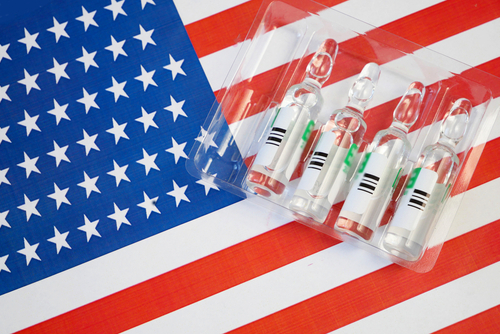
A partnership between the Departments of Health and Human Services (HHS) and Defense (DoD) known as Operation Warp Speed has accelerated efforts to develop COVID-19 vaccines and therapeutics, but transparency is lacking, the Government Accountability Office (GAO) said.
Typically, vaccine development can take 10 years or more, but Operation Warp Speed has allowed developers to pursue key steps simultaneously, shaving massive amounts of time off the process. As of October 15, the federal government had spent more than $10 billion through the effort for 6 vaccine candidates. Additional funds have been heaped on therapeutic development.
Under the $2.2 trillion Coronavirus Aid, Relief, and Economic Security (CARES) Act, GAO was given leave to monitor and report on efforts related to the COVID-19 pandemic.
Beyond assessing the speed and costs of Operation Warp Speed, GAO also examined the Food and Drug Administration’s emergency use authorizations (EUAs). So far, the FDA has issued four EUAs for the temporary use of otherwise unapproved therapeutics. This is where the trouble comes in — GAO said the rationale behind these issuances has not always been clear and could undermine public trust in the process.
EUAs require just enough evidence to show that products’ benefits could outweigh known and potential risks. While the FDA has provided recommendations for supportive evidence developers might submit, such evidence has not always been clear, as the FDA does not uniformly reveal its scientific review of safety and efficacy data for EUAs, a fact in sharp contrast to approvals for new drugs and biologics.
Given that the United States has had more than 11,360,000 cases of COVID-19 and more than 248,000 affiliated deaths, according to data from Johns Hopkins University, GAO has urged the FDA to identify ways to better communicate its safety and effectiveness findings to the public, and thereby increase its transparency. However, the HHS — which oversees the FDA — has neither agreed nor disagreed with the recommendation.




